102 Liane Clamen Final
[00:00:00] Hello, and welcome to the amazing exec show. I’m your host David Rosen. Today. We’re going to see episode 1 0 2 with Leanne Clayman, the president and CEO of Adapta lens. Imagine having cataract surgery and having to choose whether after the surgery, you’ll be able to see distance or close up as your optimal eye range.
[00:00:24] That’s what happens today. Adapt a lens is in the development of a new product that will help us be able to throw away our glasses after cataract surgery and be able to. Have a lens that acts just like the current lens that we’re born with. So about two years ago, I founded Adapta lens and we are developing an accommodating intraocular lens to be implanted during cataract surgery.
[00:00:52] And our lens is soft and flexible, just like the young, healthy lens. So it will allow the to focus again, and it will allow patients to see clearly without needing eye glasses. So you can throw away your glasses, David, once we get this developed. So today she’ll be talking about how she’s brought the team together, work at developing their product during COVID and leveraging the value of her board to accelerate the development of her product.
[00:01:23] And. How she thinks about business as a very technical background, CEO and founder. So I think in order to become an entrepreneur, one must be comfortable with the concept of risk. It’s risky to start a new business and do something that nobody’s done before. And again, the people I’ve surrounded myself with are also.
[00:01:44] Up for the challenge, get right into it and start episode 1 0 2 with Leanne Clayman of Adapta lens.
[00:01:55] Acrylic group welcomes you to the amazing exec show where business leaders learn from other leaders. Join us along with your host, David Rosen, the CEO of acrylic group. We discover and dive into stories from executives, founders, and owners in what separates them from success and failure here in see amazing leaders from startup.
[00:02:13] Middle market and global leading companies. Now kick back and enjoy watching our videocast or listening to our podcast. The choice of media is all yours. Come take this amazing journey with us and learn how great people do the thing they do.
Amazing Execs Show – Episode #102
Liane Clamen
[00:00:00] David A. Rosen: Hello, Liane. It’s great to see you. tell us something interesting about yourself, Liane, that people don’t generally know and add on top of your introduction.
[00:00:11] Liane Clamen: Oh, David. It’s great to see you. And thank you so much for having me here today. One thing that people generally don’t know about me is that I spent a year working with Tibetan refugees in Dar law, India after college.
[00:00:23] Liane Clamen: And that really helped shape my outlook. As a young adult, helped me decide, change my career path, go on to medical school. And so that was a formative time for.
[00:00:35] David A. Rosen: Wow. Wow. One of the things since I first met you, Liane, is I really appreciate your sense of purpose in life. And I think with your business, you are really, you’re really serving a lot of health needs that people have.
[00:00:50] David A. Rosen: Can you talk about your primary business and what you’re up to and where you are in the stage of your business and. .
[00:00:57] Liane Clamen: Yeah. Thank you, David. So about two years ago, I founded Adaptilens and we are developing an accommodating intraocular lens to be implanted during cataract surgery. And our lens is soft and flexible, just like the young, healthy lens.
[00:01:14] Liane Clamen: So it will allow the to focus again, and it will allow patients to see clearly without needing eye glasses. So you can throw away your glasses. David, once we get this developed, we’ll. Doing cataract surgery implanting this and people will never need glasses again.
[00:01:30] David A. Rosen: Wow. For nearsightedness or farsightedness.
[00:01:34] Liane Clamen: Yeah. So the goal is to do this for older patients, who’ve developed cataracts and as you. N probably no, the cataract is just a thickened opaque lens inside the eye. And by the age of 75, about half of Americans have cataracts and now people are living longer. So you live long enough and you’ll need to have cataract surgery.
[00:01:55] Liane Clamen: But we do a lot of preoperative measurements. We get the power of the lens as you need it. And because our lens is soft and flexible, it will really restore the I’s ability to focus. It allows these tiny muscles inside the eye to change the change. The lens is shape so that you can see clearly.
[00:02:14] David A. Rosen: Wow. And today the lenses are all hard, right?
[00:02:16] David A. Rosen: So they don’t have that adapt.
[00:02:19] Liane Clamen: That’s right. So the standard of care is a monofocal lens, which means you can correct patient’s vision for distance or near, but not both, but the natural lens, the soft, flexible lens is really miraculous in that it can change shape and change power. So when you see a young 10 year old kid with healthy eyes, they can see something very close to their eye because the lens becomes rounder more powerful.
[00:02:43] Liane Clamen: Then when they look at distance, the lens becomes more elliptical. So even though your eye has it, the miracle is that it can change power all because of this soft, flexible lens inside.
[00:02:54] David A. Rosen: And interestingly enough the lens will be helpful for anybody who has cataracts. My a good friend of mine. My wife actually had cataract surgery when she was in her forties, because of she has sinus infections on a frequent basis that, that causes her to take steroids.
[00:03:12] David A. Rosen: And the steroids induced the cataracts condition in her. She was one of the youngest people, but it can affect a lot more than just the elderly population in terms of people who can be affected by cataracts. That’s probably an exception.
[00:03:27] Liane Clamen: You’re absolutely right. Yeah. There’s steroid induced, cataract formation, trauma induced cataract formation.
[00:03:33] Liane Clamen: So younger people can develop cataracts. The majority of the patients we operate on of course are the, are older with just age related cataracts.
[00:03:43] David A. Rosen: So your business is two years old. It seems like you’re making great progress that we’ve talked about previously, but, and we’ll go into it a little bit more, but tell me how you got started with this and decided to actually create a company.
[00:03:56] David A. Rosen: What was, what were you thinking years ago?
[00:03:57] Liane Clamen: I was asked to coauthor a textbook chapter on the history of intraocular lenses. So I was an English major at Harvard undergrad, and I am pretty good at writing. So I ended up coauthoring journal articles and textbook chapters, but this. Particular chapter was so interesting to me because cataract surgery is our bread and butter as ophthalmologists.
[00:04:20] Liane Clamen: And so to go through the history of every IOL, every intraocular lens that had ever been developed and put on the market, by the end of this research, I realized that nobody had developed a lens that just imitates. The natural eye and it’s very hard to imitate nature. It’s not an easy thing to do, but from that point on, I realized that would be a worthy goal to try to imitate this soft, flexible lens.
[00:04:44] Liane Clamen: So I partnered with a polymer chemist. We co-authored a patent and it finally, when the patent was issued, I realized, okay, we have something here. Let’s. Go out, build a team and try to get some funding. So about a year ago, we closed our seed round oversubscribed seed round, but we ended up with 1.6 million from pillar VC and to Canto partners.
[00:05:06] Liane Clamen: And since then I’ve been awarded, it was close to $90,000, a mass next gen award from the Massachusetts life science center. So that added a bit to it. So that got us off the ground helped us hire on a few engineers and we’ve partnered. Dr. Professor Matt Becker at duke university. So he’s developing this proprietary polymer that will allow us to have a lens that imitates nature.
[00:05:30] David A. Rosen: So tell me about your starting team. How many people did you start with to get this off the ground? And were you all, did you all go in full time and the heads down or was some of you part-time and how did you know and tell I’d like to learn a little bit more about your CEO role of how you’re the quarterback for the team here?
[00:05:51] David A. Rosen: Yeah. If you could
[00:05:51] Liane Clamen: describe that. it’s an interesting story. So I had come up with some other ideas before a DEAP lens, and one was an idea for a punctal plug drug delivery system. It’s basically something that goes in the tear duct of the eye, and slowly releases a glaucoma medication. Non-compliance is a big problem with glaucoma patients.
[00:06:11] Liane Clamen: So this would just allow the doctor to implant something that would slowly release the medicine and the patients wouldn’t have to worry about eye drops. So we licensed that patent and I got help with that project from bill Shay and John Andres and bill and John are older. They’ve both been working in the medical device field for more than 30.
[00:06:32] Liane Clamen: They could retire and sit on a beach, but I think that they’re driven and so interested in what’s happening these days that they have formed a partnership. And so bill has an MBA, has the business background. John is a patent attorney and because I had such a good experience working with them in the past, I told them about this idea, told them about our market opportunity, potentially $4 billion a year in the us alone.
[00:06:56] Liane Clamen: So they came on board with me. They were my initial founders. so it was through bill that I was introduced to Thomas neon, a brilliant polymer chemist. Created many companies of his own, just a few months ago, he sold his most recent company for 225 million. So he really knows how to take polymer, chemistry ideas and bring them to market.
[00:07:16] Liane Clamen: It was bill John Thomas and I that got the company off the ground. Thomas introduced me to Matt Becker. This up and coming polymer chemist at duke. And then once I gave Matt Becker the scope of work, and he came up with this brilliant strategy for creating a new polymer for us. And once we had that, it was here to bring on board people like Brian Levy, who was the past chief medical officer at Bosch and law who had worked with.
[00:07:44] Liane Clamen: Lenses. And really it was the team building was the most fun because we could handpick the best people in the field and bring them together to get this off the ground.
[00:07:55] David A. Rosen: That’s awesome. So what I’m hearing Liane is that you are not only an innovator and you like to look at new markets and ways to disrupt them, but you’re also a recruiter and you’re able to get people to work with you to go after new visions that now, when they were working with you in this, in these cases, were you paying them or were they working because they believed in the purpose and the value proposition of what you were working.
[00:08:23] Liane Clamen: That’s exactly right. They are as passionate about this as I am. So they have some equity in our company and that’s enough. They invest their time and really help get this going. So we do have paid employees, but the original core team, the scientific advisory board and business advisors are. Equity holders in Adaptilens.
[00:08:45] David A. Rosen: Awesome.
[00:08:49] David A. Rosen: Hard to convince people to work for pay and do a good job.
[00:08:54] Liane Clamen: and sorry, cut out at the beginning of that.
[00:08:58] David A. Rosen: I have to change microphones here. This is terrible. I will be editing that this dialogue out, but no, I was saying that it’s difficult enough to get people to do great work when you pay. but the reality is what you learn as a recruiter is that you’re able to motivate them, not always just with cash, but you motivate their hearts, their minds and their wallets.
[00:09:22] David A. Rosen: And they’re okay with the deferred compensation that they’re going to get from equity in your business, but they are passionate about what you can do and that’s hard to do, but that is the core of an entrepreneur. I believe in what they bring to the table in many cases, as the founding CEO of the business, which you are right.
[00:09:42] David A. Rosen: That’s
[00:09:42] Liane Clamen: right. And the wonderful thing is they’re just as motivated as I am to get this working, because again, we’re all stakeholders. And so it works beautifully that. They’re willing to give their time to get this off the ground, get it in people.
[00:09:56] David A. Rosen: Yeah. It helps being able to, I know that when I know the people who have had cataract surgery that I know they’re always, the first thing they’re given is a choice of, do you want to have distance in, in your, in the nearsightedness or do you want to have farsighted this vision?
[00:10:11] David A. Rosen: Because the typical lenses used today, don’t allow you to be flexible and it seems this is. This almost seems like a slam dunk value proposition. I know it’s not, but because of the science that has to go into it and the economics that have to go into it. But let me ask you this question. So you’re still in the development stage where you’re iterating on the concept.
[00:10:33] David A. Rosen: You’re not iterating on the concept. You’re iterating on. The foundation of the product that can be commercialized. And you’re also having to work through the typical FDA process to do that. That’s right. Yeah. Are there any other important considerations that you’re focusing on right now as a part of moving this forward?
[00:10:54] Liane Clamen: So right now, we’re still in proof of concept phase. So we are implanting these lenses in human cadaver eyes. And we have worked with Adrian Glasser who was a professor and really the expert in the field of accommodation of the eye. So he’s developed for us what we call an accommodation simulator. It’s basically a stretcher system.
[00:11:16] Liane Clamen: So we, after we’ve implanted our. In the eye, we dissect down to these muscles of accommodation inside the eye, attach it to the simulator and simulate dis accommodation. So really it starts in the near vision power, and then we stretch it so that it’s in the distance vision power, and we do laser scans.
[00:11:35] Liane Clamen: So we gather data to show how the power. In the lens changes with the muscles acting on it. So this is the standard sort of proof of concept phase. And once we get good, we’ve gotten good data in the lab, but now as you say, we’re iterating on the prototypes and also working on methods to allow them to be mass produced.
[00:11:57] Liane Clamen: Because at this point they’re each one is handmade and now that we find they’re working well, we. Adjusting the method of fabrication so that it will be easier to mass produce
[00:12:07] David A. Rosen: these. And are you also, so one of the things in, throughout my career and a lot of my colleagues we’ve come up with what we think are four foundations.
[00:12:20] David A. Rosen: Four strategic foundations or pillars of a business that need to be addressed in any phase of growth, whether you’re in concept or whether you’re in commercialization or go to market or scaling or in a mature marketplace. And those four things are people. And people stands almost alone and I’ll come back and tell you why.
[00:12:42] David A. Rosen: But the second pillar is the value proposition and the customer intimacy and the market intimacy that you have the knowledge and experience and understanding of how people buy and why they buy and where they buy and what their decision process is. The third area. Is really critical to considering a business, which is the operations and economics and financials of the business.
[00:13:08] David A. Rosen: It’s and I treat financials and economics differently. Economics mean, can you get the unit cost down to the appropriate cost so that you can actually make a margin on your product between what customers are willing to pay based on your value pro. And so it’s all about the operations, the manufacturing and economics, and the fourth pillar is all about product viability and doability with today’s capabilities or technologies or service functionality.
[00:13:40] David A. Rosen: That you actually know that you can do this within a reasonable period of time, whether it’s six months, a year, two years, as opposed to, you have to wait for another technology to come out five years from now. So those four things, and more importantly, the people is the first one because in a, in my experience of changing organizations from when you first start up and your three founders.
[00:14:03] David A. Rosen: and trying to understand how to manage each other and relationships with other people who are helping you. And then you’re moving to 10, 20, 30, 50, a hundred people. Anytime you’re making changes like that, the people issue become the dominant separator between success and failure. And in that perspective with that people issues overhanging the business issues.
[00:14:29] David A. Rosen: If you will, in customer knowledge and business operations and product viability and feasibility, if you don’t bring and align your organizations with the change you’re making from each stage along your growth path, or when you face a crisis and have to change your business because of the crisis. If you’re, if you don’t have your people aligned, you’re not going to succeed or you’re going to wildly miss your expectation.
[00:14:55] David A. Rosen: But what are your thoughts on that as a you’re in kind of development stage of your business, and this is your first entrepreneurial gig. It
[00:15:04] Liane Clamen: it is. And Adaptilens was really born during this COVID pandemic. And in a sense, it helped us that everybody has become very comfortable with zoom and with other forms of virtual meetings, because we have been able to hand pick the best engineers.
[00:15:23] Liane Clamen: The best collaborators. As I said, our Paul chemist, Matt Becker is based at duke university, our engineers. We have a great engineer in California and a team actually working out of Maine. And we’re doing the lab work here in the Seaport district. So we’re able to have really a virtual company because that has become more acceptable.
[00:15:47] Liane Clamen: And by doing this, we have the most highly motivated, the most brilliant and. And people who have expertise in this niche field of accommodation, of the eye, the people we’ve brought together intentionally we’ve selected people by who they are not by geography. I’m sure we probably couldn’t get such a great team.
[00:16:07] Liane Clamen: If we required everybody to move to Boston, it’s a unique experience building a company during a pandemic, but we have been lucky in a. Because, as I said, we’ve picked the best people. And also we all get along when we have our lab meetings and we meet every other week. It’s a good group and people who are passionate about what we’re doing and are highly motivated.
[00:16:31] Liane Clamen: What are the
[00:16:31] David A. Rosen: things that you think about in terms of, I’m assuming it’s really difficult to, you can find people with great track records and excellent CVS. It sounds like you really need high levels of collaboration, high levels of consensus. And so that people are focused on the same objectives. So tell me a little bit more about how are you doing that with this team and given the fact that they’re virtual and remote, what are you doing to minimize your risks and to get that collaboration to the point that you need it to move this forward?
[00:17:11] David A. Rosen: As fast as you can.
[00:17:13] Liane Clamen: Yeah. So we have a really wonderful interdisciplinary team. I’m an ophthalmologist, Sheila BOLI trained with me at Harvard’s mass eye ear. She’s on board as an ophthalmologist, and then we have a few polymer chemist. Some business guys, some people like Brian who’ve been in industry and then the engineers.
[00:17:30] Liane Clamen: So when they’re all together in a virtual room, they can bounce ideas off each other, share experiences, share what they’ve seen. That’s worked in the past. And I think in a sense it’s a little easier, so it’s not just. Engineers working with engineers. It’s actually engineers working with industry people, working with ophthalmologists so that when we cross pollinate, we all get together and share our own experience.
[00:17:59] Liane Clamen: It’s richer, I think, than just people, the people, foot soldiers in the lab themselves. So I. By meeting frequently, we have one biweekly lab meeting where everybody meets, but then we meet frequently in smaller groups throughout
[00:18:15] David A. Rosen: the week. So how do you think as you start going from development to beta and your first testing, how do you expect that to change in your?
[00:18:26] David A. Rosen: So
[00:18:26] Liane Clamen: I think that we probably will need to outsource some things. So for example, biocompatibility and toxicity tests, a lot of companies like ours, Outsource that to a larger CRO like NASA. And I guess we’ll, as we spread out and hire on others companies to help, I’ll have to remember to keep everybody as involved as possible with each step of the way.
[00:18:51] Liane Clamen: And then just like a kid as the company matures and evolves will. Shift and hire more people will be doing clinical trials as well. So we now have a regulatory consultant who is just a consultant and part-time, but in the end, she’ll probably have to shift to a full-time employee, for example, as the company’s priorities change.
[00:19:16] David A. Rosen: Interesting. And how will the. Parts of the equation change from, you’re going to have to create manufacturing or find a manufacturing partner. You’re going to have to look at your economics. Are your business guys looking at those economics today in terms of the value stream to go from cost of good sold, to delivered and inserted.
[00:19:38] David A. Rosen: product.
[00:19:39] Liane Clamen: Exactly. It’s nice that we have business people on board. And the other good thing is that we have a wonderful board of directors. So that, of course we have our quarterly board meetings where they provide a lot of insight and advice, but we talk frequently with our board, even between the board meeting.
[00:19:57] Liane Clamen: And they’ve given us not only good advice, but tapped into their network of great people. So we’ve met and made good connect. Through the board, in fact, and they’re always making me think about our burn rate and other business things that I’ve been learning as an MD. I don’t have an MBA, but I’m certainly learning as I go.
[00:20:15] Liane Clamen: Can
[00:20:15] David A. Rosen: we talk a little bit more about your board experience because it’s you and I met when you were first exploring. One looking at creating your own board as you were doing your first round of fundraising, and two, just looking at the role and value of boards to companies. And so tell, explain a little bit more about your experience and what you were thinking of.
[00:20:35] David A. Rosen: And did you do your expectations, are, have they been met with what you’re doing with your board and, or they’ve been exceeded and tell us about that whole experience. Yeah.
[00:20:46] Liane Clamen: So I’ve served on boards before. I’ve never been the chair of the board. And so I was happy that the private director’s association actually, and you, David helped.
[00:20:56] Liane Clamen: To meet people and guide me through how to run a board meeting. What are the most important considerations? Now? Of course, I have had experience running a board meeting, but the meetings have been incredibly helpful. It makes you sit back the day to day, you get caught up in the weeds and then you have to sit back and think, okay, what are the most important factors to discuss?
[00:21:18] Liane Clamen: What are the problems that we can get help with? The board meetings have been more help than. Expected, they would be. In fact, we have a great group together, so I’ve enjoyed the meetings and even preparing for them. It does help to better understand the priorities of the company, I think. Is it fair
[00:21:37] David A. Rosen: to say that by virtue of having your board, it helps you work on your business?
[00:21:42] David A. Rosen: Not just work in.
[00:21:45] Liane Clamen: Yeah, that’s a good way to put it. I think that again, we’re all in it together and the, to choose or to have people on the board who have a lot of experience and experience in areas that I don’t have, has really helped. A and I think we have a very friendly board and I can ask anything even I’m not afraid to share the difficulties that we’re having and things that I can get much more.
[00:22:11] David A. Rosen: Because in, in our experience, Liane and my experience, it’s always when you find entrepreneurs who are starting a business, or you find owners of companies that even in the middle market, they’re very entrenched in their business in the day to day, they’re selling, they’re delivering, they’re managing operations.
[00:22:29] David A. Rosen: So they’re working in their business and very rarely do they step outside of that role. And look at things to work on their business. Like how are they going to improve quality over time? How are they going to reduce the sales cycle? How can they increase the average contract value? They’re not asking those questions when they’re in the mix.
[00:22:52] David A. Rosen: And so that’s why I separate working on the business versus working in the business. It’s the paradigm of looking at the forest through the trees versus looking at. So you believe that the board has really been helpful in. . Is there anything that you would do differently with your board today?
[00:23:09] David A. Rosen: If you knew what you know. After six months or a year?
[00:23:14] Liane Clamen: No, I think we are planning to raise a series a in a few months. So we’ll be looking for more investors. And I think that as we talk with investors, that’s something now that will be in the back of my mind that who do we want to work with and meet with frequently?
[00:23:29] Liane Clamen: Because again, the culture of the board is so important and I want to maintain friendly, positive, helpful culture that we have today.
[00:23:38] David A. Rosen: so is it fair to say though, that you’re looking for investors that you can work with, that don’t just expect a financial return and say, here’s your cash? And we’ll see you later.
[00:23:50] David A. Rosen: Our
[00:23:50] Liane Clamen: goal is to help people. Our goal is to make a lens that I’ll have implanted in my eye and a lens that will allow people to see clearly without glasses. And we’re keeping our eyes on that prize. And I think of course, in order to get investors, we need. Have a company that will make money, but the nice thing is the investors we have today, I think also believe in helping people.
[00:24:14] Liane Clamen: And yeah, that’s the goal is that we’re going to make a product that really works well and improves the quality of life of millions of people.
[00:24:24] David A. Rosen: Great. So let’s shift for a second to risk. How do you manage risk in the business in trying to. Evaluate the risk of decisions you make or de-risk situations that you’re in.
[00:24:37] David A. Rosen: Is that a part of your management process and people’s style?
[00:24:43] Liane Clamen: So I think in order to become an entrepreneur, one must be comfortable with the concept of risk. It’s risky to start a new business and do something that nobody’s done before. And again, the people I’ve surrounded myself with are also up for the challenge.
[00:24:58] Liane Clamen: And so risk is just part of what we’re doing. But for example when Matt Becker came up with a plan for this polymer, he, of course we together looked at what’s been used in intraocular lenses in the past. So this is a type of a silicone, which is commonly. In intraocular lenses. And we look at, what’s been done before and try to de-risk in that sense, in terms of the chemistry behind things.
[00:25:24] Liane Clamen: And also again, having people on board, like Barish our regulatory consultant who she’s worked with IOL. With lens companies in the past, working with experienced people, they’re always saying, okay, this company has done, did this make sure that you consider that as you move forward? So I think, again, working with people who have a lot of experience has helped us de-risk along the way.
[00:25:48] David A. Rosen: So it sounds like you’ve been able to develop a business. In the middle of a pandemic where that was probably the only global pandemic that has hit this world, that’s affected everyone across the globe. And you’ve been able to take advantage of that because of the technologies and virtual capabilities, but also your ability to recruit people and ensure that they’re collabo.
[00:26:14] David A. Rosen: If I may, what do you see for this year? And next year, as we hopefully emerge from the pandemic and what do you think will change and how will you adapt to that based upon where you are with your business formation and development?
[00:26:27] Liane Clamen: Yeah, I suppose for us, the next big step is showing reproducible proof of concept.
[00:26:33] Liane Clamen: And then there’s. Fairly clear path in terms of the regulatory, FDA regulatory pathway, but it will be exciting to be out in the world more and meeting with potential investors. As I mentioned, we’ll be raising in series a within the next few months and meeting people in person is just so much better than meeting new potential investors on a screen.
[00:26:57] Liane Clamen: It will be good to for us personally. And of course, we’re all. Eager to get back out in the world and to see this pandemic behind us. But again, the benefits that we’ve gotten from the pandemic, being able to hand select the best people to work for adapt lens. I think we’ll continue that even as the world emerges, I think it’s been a good business model for us to just select the best people, regardless of GE.
[00:27:24] David A. Rosen: Awesome. And that’s, and also putting them in the right roles. Sometimes I think larger organizations tend to have the wrong people in the wrong roles, but more often they have the wrong people in the right roles and they don’t understand why they’re not getting further along, faster in what they’re trying to accomplish.
[00:27:42] David A. Rosen: So what would you. You’re in probably one of the most regulated industries and has complex challenges. And you are an asset intensive business. Are you hoping to manufacture? Where will you be manufacturing and what is that process do you think gonna look like,
[00:27:59] Liane Clamen: as I mentioned, we are now our engineers are shifting their mentality at the beginning.
[00:28:04] Liane Clamen: We were just making these by hand, trying to get them to work. Now that we see we are getting them working. The shift is to figure out how to create it in such a way that a fabrication method can be mass produced. So that is a shift. And I think everyone is helping again, the industry leaders who we have on board are helping as well, but that’s one, one change that we’re seeing within our company.
[00:28:29] Liane Clamen: And I’m sorry, what was the next part of the question?
[00:28:31] David A. Rosen: So the point is where will you be manufacturing or where do you intend? What’s your first, are you going after the us market first or are you going after other markets? How will you look at your markets? And then second, how, where are you looking to manufacture and bring this all together?
[00:28:48] David A. Rosen: And are you concerned about potentially even going to China as an example, to just because of the challenges in supply chain issues and the challenges in the. Dominance of China in pharmaceutical manufacturing. Tell us a little bit about those two things, and then we can we’ll wrap it up from there.
[00:29:10] David A. Rosen: Yep.
[00:29:11] Liane Clamen: Yeah, because we’ve got people on board, like Thomas neon, who’s brought these polymer chemistry ideas to market. He has a lot of connections that will allow us to keep the manufacturing process in the us. I think that’s important to us and. Something we can do because now, even down the street in candle square, there’s so many companies that are eating polymers and that are used to these sorts of materials that we’re developing.
[00:29:39] Liane Clamen: So the plan is to keep the manufacturing in the us. And then for now, although we’re filing PCTs and international patents, we plan to really be an American, a company for the us. I, in this country. About 4 million cataract surgeries are done each year worldwide. That number is 20 million. So it would be nice to eventually tap into the global market.
[00:30:03] Liane Clamen: But at this point as an early stage company, the goal is to start with our
[00:30:08] David A. Rosen: own country, right? Stay focused and your market space and knowing who your customers are. And then you can expand geographically. You can expand to other applications. Absolutely. That makes a lot of sense with. Do you have some advice for others in the medical device space or anyone starting a business?
[00:30:28] David A. Rosen: What would you share as your top four or five things that are important that you’ve realized in your role as CEO of Adaptilens?
[00:30:38] Liane Clamen: So I was just teaching a professional development week class at Harvard medical school, and I had to give them these youngsters some advice. And I think as you can imagine, my first piece of advice is surround yourself with really great.
[00:30:51] Liane Clamen: People that are brilliant and creative, but people that you like to work with, cuz you’ll be spending a lot of time with your team. And the second piece of advice really is patience. We had this idea, I had this idea a long time ago, but it wasn’t until the us. Patent and trademark office issued our patent that I felt we could go out and do some fundraising.
[00:31:12] Liane Clamen: And then the fundraising process takes a lot of time with a lot of rejections along the way. So patients and persistence are also really key, but then the third piece of advice is to remain passionate when you’re gut that you’ve got a great idea that can really help a lot of people keep that passion and persistence and keep going for it.
[00:31:34] Liane Clamen: That’s
[00:31:34] David A. Rosen: awesome. Liane. I, I. I can’t wait to see what happens with you and the product and the business. And I’ll look forward to seeing you as you raise your next round. It tell us, do you have a favorite business or book that you are reading right now that you would share Simon
[00:31:50] Liane Clamen: Sinek and I have it around here somewhere.
[00:31:53] Liane Clamen: It’s something about, start with why. And he talks a lot about businesses are stories, just like people, our stories, and it’s important for people to understand the origin of your company. And that makes a lot of sense to me cuz. This is something that’s been percolating in my mind for many years, I’m starting.
[00:32:14] Liane Clamen: The textbook chapter. I wrote about all the intraocular lenses that had ever been developed. And I like, so yeah, I like how he writes and I like his, what he’s been talking about.
[00:32:25] David A. Rosen: That’s awesome. So we’ll try and post the link to that book or something along with this video cast. And then I guess one last question before we ask you to talk about how people can reach you or find you, and that’s tell us about your board role at the cricket club, how.
[00:32:40] David A. Rosen: How did you get involved? Do you, are you a regular cricket player?
[00:32:45] Liane Clamen: oh, it’s interesting. We live very close to the Longwood cricket club. And in fact, it’s actually a long tennis club. So although it’s CA still called the Longwood cricket club, it is a tennis club and I have four kids. They grew up there playing tennis with me, swimming there.
[00:33:02] Liane Clamen: And so I was asked to be on the board, I think, to represen. The families. So I was chairman of the junior committee and in the end I created a safety committee there as a physician on board, seeing that there were things we could improve upon with the safety of the club. So it was a really fun role that was more of a social board.
[00:33:23] David A. Rosen: I was expecting to see cross the cricket sticks behind you or something. I don’t even know what they’re called, but I wanted to know the story behind that. So Liane, tell us how can people reach you and you expect around coming soon. And thank you for your time in spending here, but tell how can people reach you and get in touch with.
[00:33:43] Liane Clamen: Yeah, thanks again, David, for having me, this has been really fun. They could reach out to me. We have a website w dot Adaptilens.com or they could always email me Liane claiming Adaptilens.com.
[00:33:57] David A. Rosen: Okay. And we’ll post those below. So for PE, for people to have easy access, Liane, this has been amazing. You.
[00:34:04] David A. Rosen: You’re a spark in the crowd that I’ve met a lot of people through the PDA and through my networking as I moved here to Boston a couple of years ago. And you’re one of those small sparks that really I think is going to grow into a big spark. I think you’re serving a great purpose and I wish you well.
[00:34:22] David A. Rosen: And I, as we talked earlier, I’d love to have you. A year from now, when you, after you’ve entered the market and you’ve gotten some traction and figure out where you are on your growth curve, because normally everybody thinks of the startup curve to mature company curve as very smooth and almost hockey stick, like but you, and I both know it’s more like a signs wave out of control where you’re high one day, because your expectations are great. You just started it and then you have these disappointments and then you’ve got some B setbacks, and then you’ve got a crater Mo moment. but then you start getting traction and start going forward.
[00:35:01] David A. Rosen: Does that resonate with you? oh yeah. It’s not a straight line. Thank you, Liane. I really enjoyed this and we look forward to hearing more about you and adapt the. Thank you, David. Thank you.
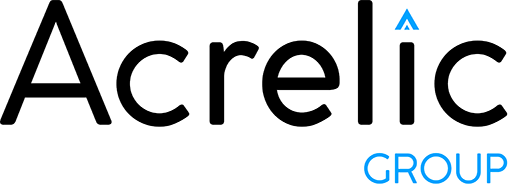

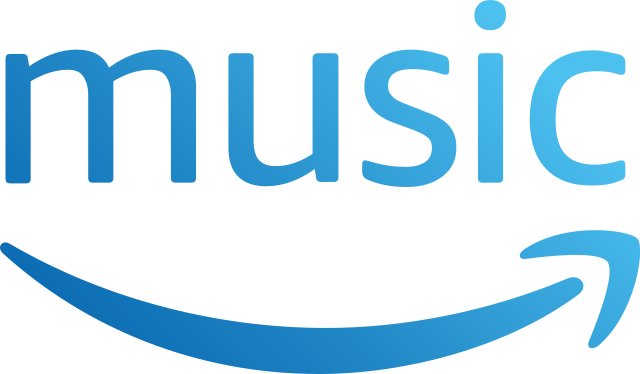




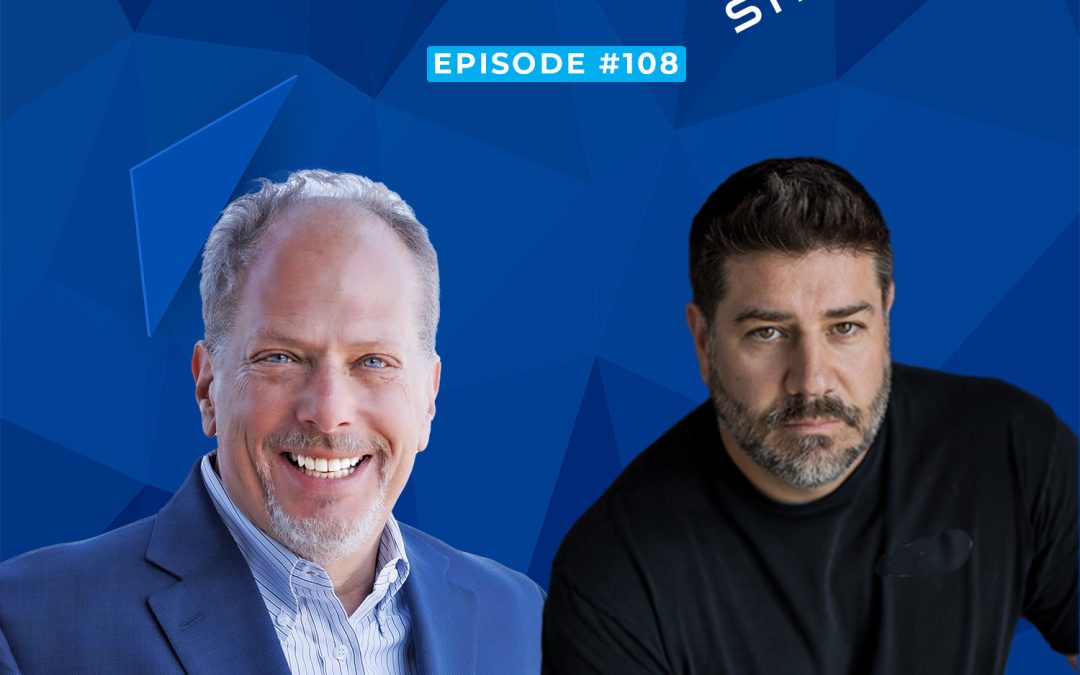
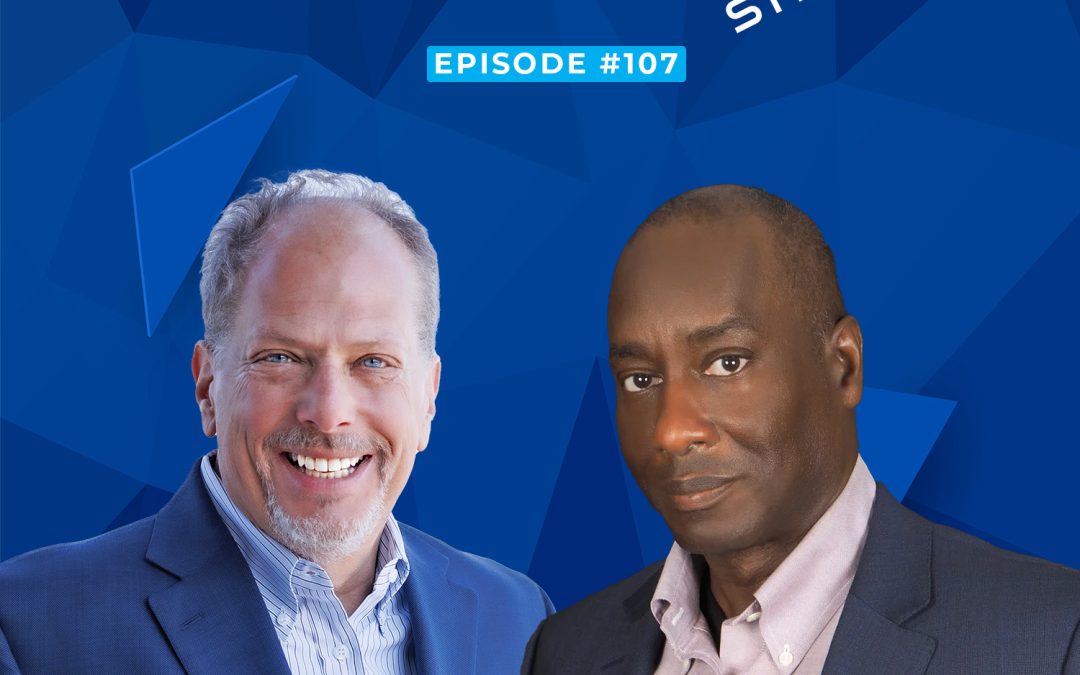

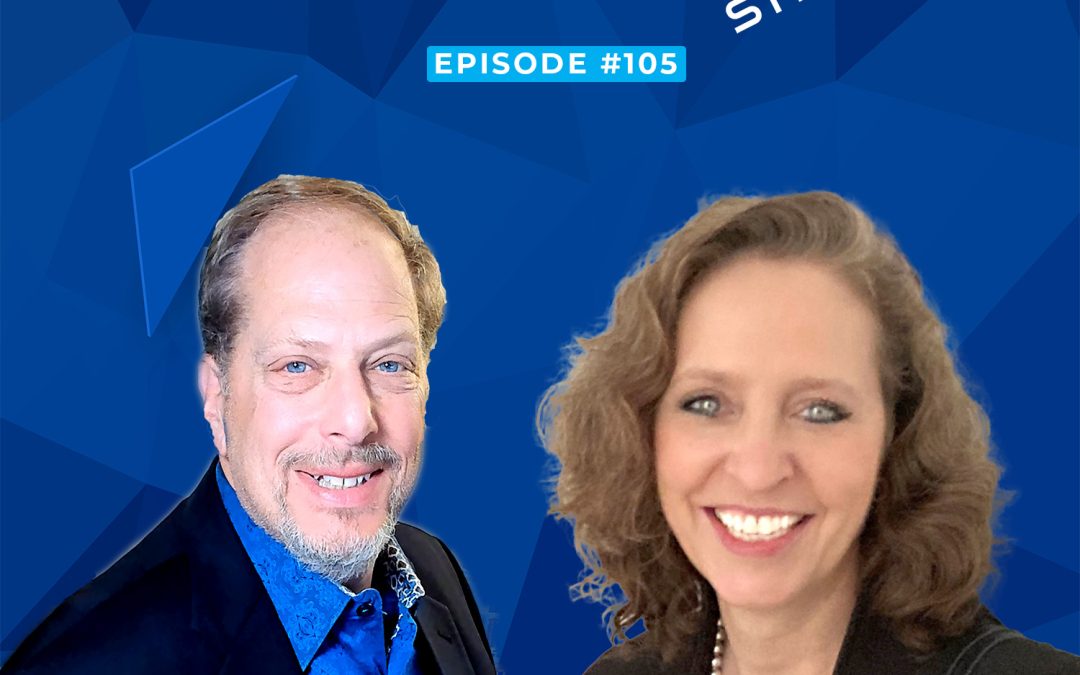
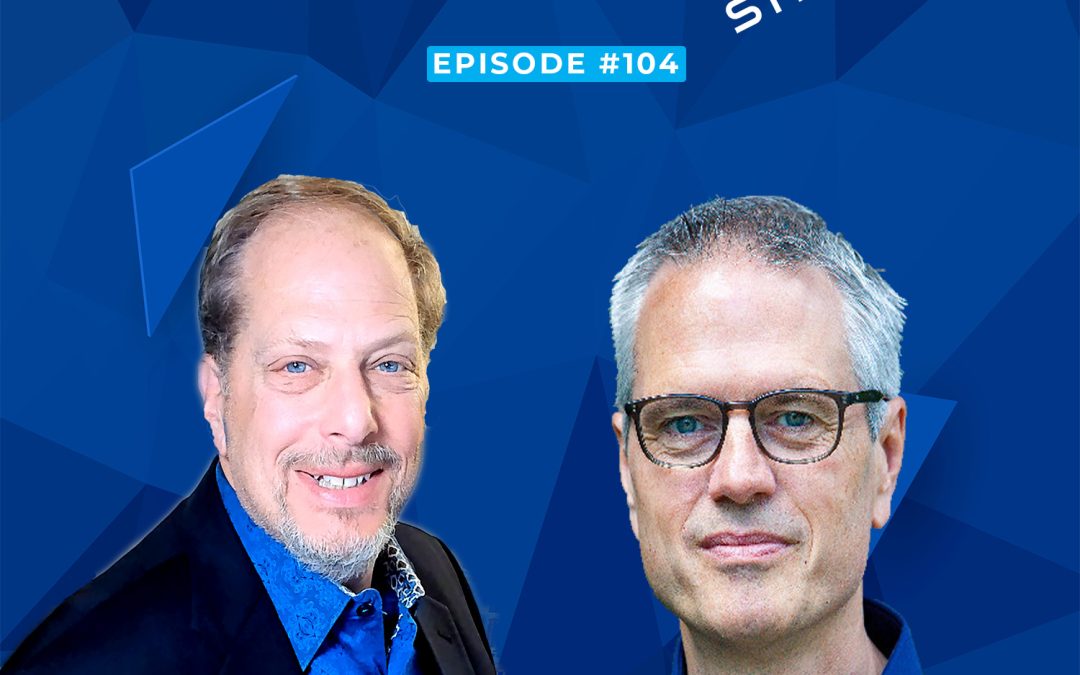
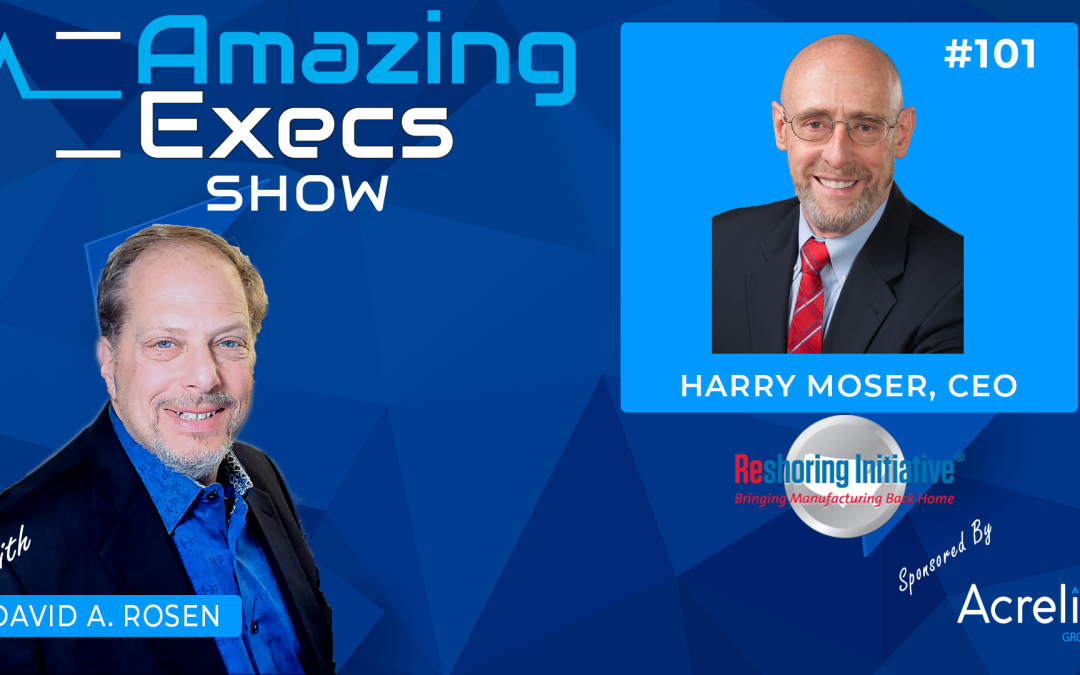
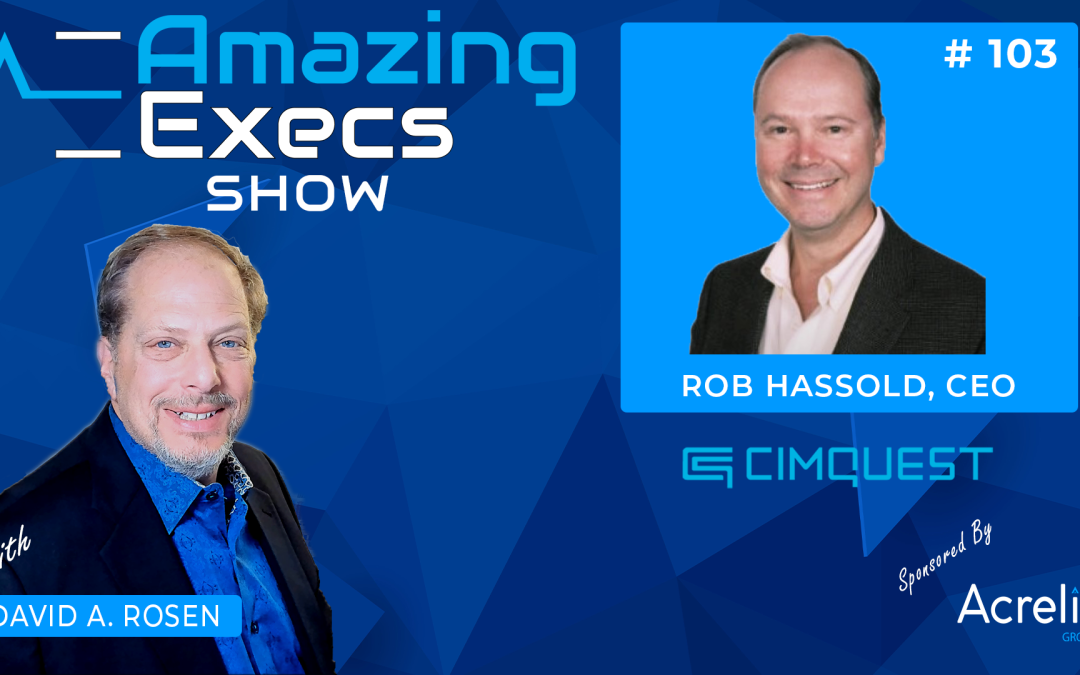
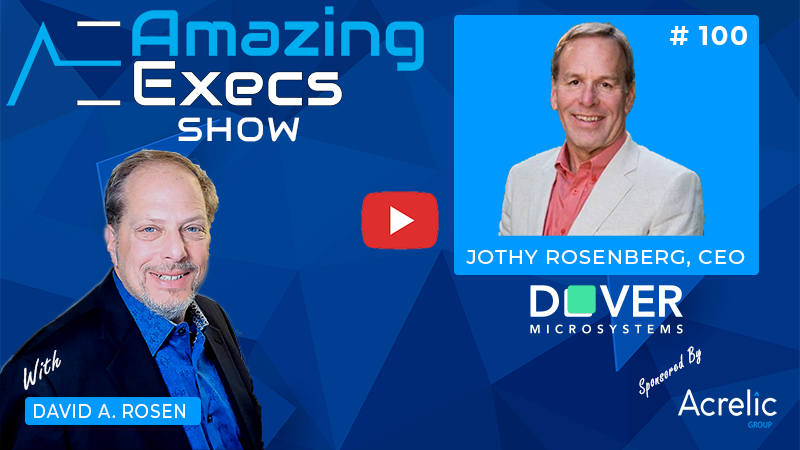
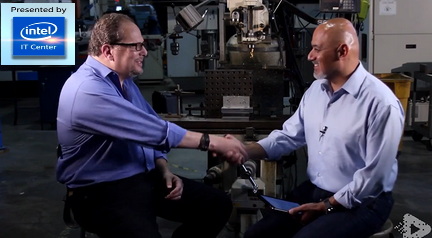
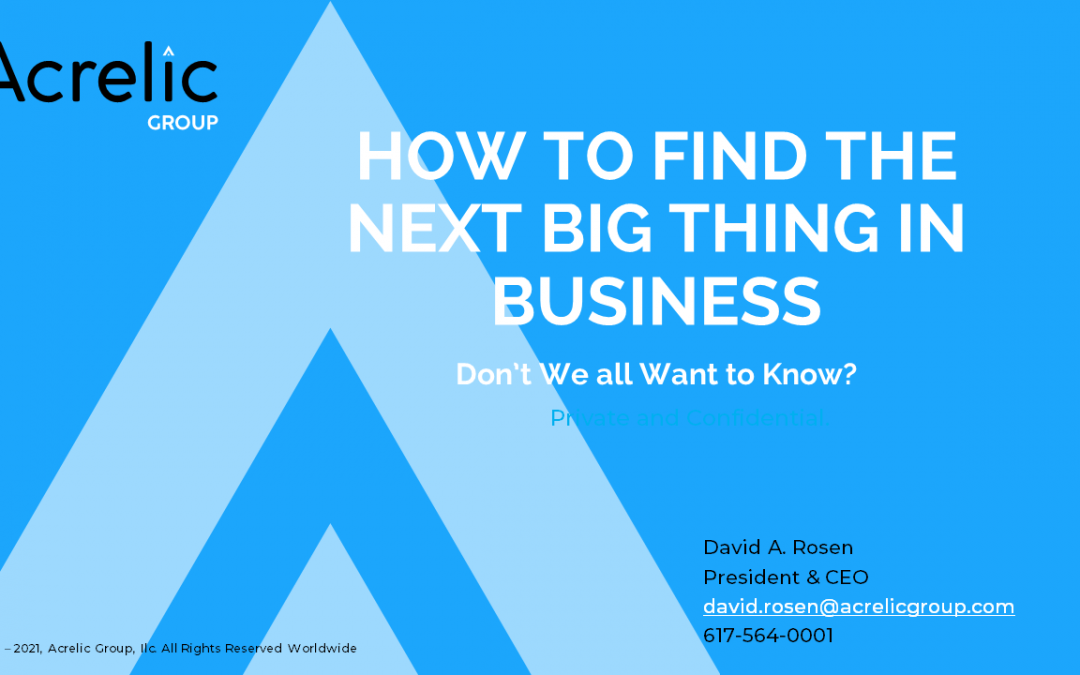
0 Comments